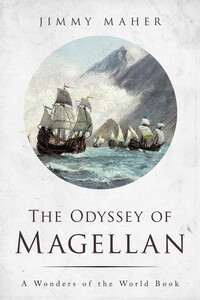In the mid-1970s a fellow named Don French was working at Radio Shack’s corporate headquarters in Fort Worth, Texas. Unlike pretty much everyone else there, Don was himself an amateur electronics enthusiast, and so actually understood those strange displays at the back of the Radio Shack stores. And he was fascinated with the idea of computers, so much so that in mid-1974 he was one of the few who managed to put together a working version of Jonathan Titus’s Mark-8 computer after seeing it in an issue of Radio-Electronics magazine. Barely six months later, when the vastly more accessible MITS Altair 8800 arrived, hobbyists across the country began hacking together machines of their own, forming loose communities of interest such as the famous Homebrew Computer Club attended by Jobs and Wozniak among other current and future luminaries. The people involved with these new “microcomputers,” as they were then known, were mostly experienced solder-gun wielders who had cut their teeth on HAM radio or radio-controlled cars — the sort of do-it-yourselfers, in other words, who had been standing in the back of all those Radio Shacks digging through boxes and shelves of wires and diodes for years. Now that they worked with computers, they continued to use the Shack as their source for the non-specialized components they needed.
French understood the hunger so many people had for a computer of their own, because he had felt the same hunger himself. And he thought that Radio Shack could do very well if it began serving that hunger more directly, by offering computer equipment at its thousands of stores instead of leaving hobbyists to rely on the network of tiny, often dodgy companies that had jumped into the new market. His problem was convincing management, and that was a tough nut to crack indeed; few have ever accused Radio Shack’s management of vision, after all.
Still, even they eventually had to see that something was happening when an event like the March, 1976, World Altair Computer Convention could attract over 700 people from seven countries to Albuquerque, New Mexico, home of MITS. After that, management began to take French’s ideas a little bit more seriously, and about May of 1976 officially authorized him to start making a computer for them. But they certainly didn’t overdo their commitment; French got to hire exactly one engineer to work on the project. Fortunately, he made a good choice in Steve Leininger, a Homebrew Computer Club member whom he imported from Silicon Valley. Together they labored over the TRS-80 in a disused room inside Radio Shack’s speaker factory, with French taking the Jobs role of public relations-man, business manager, and general vision articulator, and Leininger taking the Wozniak role of technical designer.
A few months in something happened that changed the direction of the project dramatically. (This anecdote and many others is taken from Priming the Pump, a fun if rambling memoir of the TRS-80 scene by David and Theresa Walsh.)
The whole project almost died one day when a heavy package came in the mail to the engineers. It was an expensive digital clock kit that the customer had put together and sent back. The customer’s story was that he had followed all the instructions and the clock didn’t work; in fact it blew a fuse when he plugged it in. “We opened it up,” says Leininger, “and the thing had an eighth of an inch of solder all over the bottom. The instructions said, ‘Put all the parts on the board, turn the board over, and solder everything to the bottom of the board.'”
That, my friends, is why it was best for everyone concerned if Uncle Jerry confined himself to the front of the store. With visions of thousands of do-it-yourself computer kits coming back to them in a similar state, management almost killed the project. Instead, miraculously, French was able to convince them to do something else: to make the machine a complete, turnkey computer rather than a kit. It’s good that he did, because in January of 1977 a struggling calculator manufacturer called Commodore Business Machines announced the PET, an event which marked the beginning of the end of the Altair era of (literally) home-brewed computers. With little funding and turnkey systems by Commodore and Apple in the pipeline, French and Leininger did what they could with what resources and time management allowed them to have. The result, which was officially announced on August 3, 1977, and started shipping about a month later, was a solidly engineered core brocaded with a heap of questionable choices, the sort of thing that could only have come from Radio Shack.
Unlike the PET and Apple II, which used the MOS 6502 CPU, the TRS-80 used the Zilog Z80. (The first part of the name “TRS-80” stood for Tandy Radio Shack, the second for the Z80.) It was clocked at 1.78 MHz, 78% faster than the Commodore or Apple, and it would prove quite amenable to expansion and modification. Luckily so, because the version that Radio Shack put on sale that autumn was… limited.
Inside its chunky plastic case was just 4 K of RAM, because that’s all Radio Shack would pay for. They also refused to pay the licensing fees to acquire BASIC from what was at that time the leading provider of microcomputer BASICs, a little company called Micro-Soft. Just as well, because they also weren’t going to pay for the 12 K of ROM needed to house it. So Leininger himself hacked together a limited subset of the language based on a standard known as Tiny BASIC, and squeezed it into the 4 K of ROM Radio Shack allowed him. This full-featured development environment came equipped with exactly three error messages: “HOW?” when some sort of logical error such as division by zero occurred; “SORRY” when out of memory (something that must have happened quite a bit); and “WHAT?” when it just didn’t understand you at all (something else that must have happened quite a bit).
At some point, Radio Shack had decided they wanted to sell the TRS-80 as a truly complete computing package, with a monitor and a permanent storage solution included. So, they grabbed the cheapest and smallest black-and-white television in their catalog (the TRS-80 had no color capabilities) and also the cheapest audio-cassette recorder and the turnkey package was complete. The computer itself was molded in what Radio Shack optimistically called “Mercedes silver” because that was the color of the already extant TV-cum-monitor. They didn’t even bother to remove the volume control from the tape recorder, which led to all sorts of fun. Here’s some contemporary advice on getting it calibrated to actually, you know, function, from an early issue of SoftSide magazine:
Get an AM radio and place it beside your computer keyboard (on the side opposite the tape recorder, so that it doesn’t get in the way). Tune it to a spot in between stations and turn the volume down low enough so that it isn’t too annoying. This will help you keep track of what is going on inside the computer when you are loading from tape. If there is little or no sound, you are either listening to a blank tape, or the volume is too low for the computer to pick up the information. If you get an interrupted buzzing, the volume is either too loud or too soft. Turn the volume (on the tape recorder, not the radio) so that there is a steady tone. Then rewind the tape and start over. If you get a steady tone, the volume is approximately (unfortunately, only approximately) correct.
Such tricks were only possible because of the truly epic levels of RF interference that the TRS-80 put out. Televisions were best placed at the other side of the house from it, and (hopefully false) rumors had it that a handful of well-placed machines could take out whole city blocks. In fact, the original TRS-80 design was finally discontinued in 1981 because it violated FCC standards for RF interference. (How it ever got approved in the first place is the real mystery…) TRS-80 loyalists darkly suggest to this day that the machine was ratted out to the FCC by Texas Instruments, who were about to enter the market with a machine of their own and wanted to trim the field a bit.
All in all, the TRS-80 reminds a bit of the old MG and Fiat sports cars my friends and I used to tinker with years ago. As we stalwartly intoned every time trying to run the engine, the windshield wipers, the headlights, and the radio off a single Lucas electrical system left us with a smoking hunk of melted plastic where the fuse panel used to be, its failings gave it personality, even made it lovable. But its lovable personality isn’t the reason that the TRS-80 became the most popular of the trio of 1977, and remained the leading system until perhaps 1980 or 1981. No, that was because (unlike the Apple II, which cost $1300 for a 4 K system without a monitor) it was relatively cheap at $600, and because (unlike the Commodore PET, which was bedeviled by supply issues throughout 1977 and 1978) it was, at least after the initial surge of interest had convinced Radio Shack to begin manufacturing it in numbers, readily available at thousands of stores all over the country.
Realizing at last that there was gold in these here hills, Radio Shack began to relent with some of the penny pinching, gradually transforming the TRS-80 into a usable little system. The standard 4 K of RAM soon became a much more reasonable 16 K, and Leininger’s primitive BASIC was replaced with a much better Microsoft-licensed variant. (Early adopters got the privilege of paying to have their machines retrofitted with these enhancements; Radio Shack never took its munificence too far.) By the time the TRS-80 had its first birthday, disk drives had appeared, as had the possibility of further expanding RAM to as much as 48 K. Such options, which had never been part of the original design plan, required the purchase of a bulky expansion box to house them and were certainly not cheap, but they did exist and were gradually adopted by those who stuck with the platform.
But we’re getting ahead of ourselves. Let’s say it’s late 1977 or early 1978, and you’ve just brought your shiny new Trash-80 home. What might you do with it? I’ll talk about that next time, and in the process also discuss a program that’s much older than any I’ve talked about so far, but that holds an important place in the history of interactive narrative.











